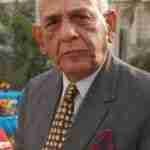On 11th November 2018, we arrived at 100th anniversary of the culmination of World War 1. Considering our inadequacies of knowledge about the role, range and magnitude of participation by troops from the Indian subcontinent in the First World War, the enormous interest generated on this subject in Europe had touched us very deeply.
Several Indian publications have brought out extensive coverage in the hundredth anniversary of the commencement of the Great War, as it was known as it unfolded. Despite the valiant attempts however, one noticed an acute paucity of authorship from the Indian sub-continent on the subject although several historians and scholars of Indian origin as part of academia in UK and elsewhere have contributed.
India & WWI
In this backdrop one is distressed to observe that the role and contribution of India is often forgotten although, “India immensely contributed to the war effort in terms of both men and material. Indian soldiers served with credit and honour in numerous battle fields around the globe: in France and Belgium, in Aden, Arabia, East Africa, Gallipoli, Egypt, Mesopotamia, Palestine, Persia, Salonica, Russia and even in China.
We in India are thus blameworthy of ignoring the contribution of our kin and forefathers, albeit as a part of the British Army, towards the sustenance of the British Empire and for the perpetuation of the British Raj in India. We chose not to remember that from the Indian population of 325 million people, about 1.7 million which included 1.1 million combatants and 600000 labour etc, had sailed to fight in the war. Eventually nearly 62,000 did not return and died and another 67,000 were wounded. In total at least 74,187 Indian soldiers died during the war.
Although much of the curtain over Indian contribution is seemingly lifting as enthusiastic Indian researchers are pitching into the fray. But it is still not adequate perhaps due to paucity of information. It is believed that “The media (source of information) worked under heavy censorship since the freedom of the Press was largely an alien concept at the time of World War I. The Press was often used therefore, as a tool of propaganda.
We in India are thus blameworthy of ignoring the contribution of our kin and forefathers, albeit as a part of the British Army, towards the sustenance of the British Empire and for the perpetuation of the British Raj in India.
Each nation employed its media to generate a positive image of the state. The Press played a very crucial role in motivating innocent, virginal men, with a misguided sense of patriotism, to join the war. Between 1914 and 1919 there were three categories of journalists – the official reporters, the ‘free press’ and the amateur journos or the soldiers reporting from the trenches. The official reporters were the only ones allowed access to a battlefield and the official photographs were the primary source of images from the battlefields”.
Written records
In hindsight, scholars have attempted to explain this gross act of omission by India’s intellectual milieu. Let me present a few extracts from the Collector’s edition published by the Outlook Magazine on this issue.
Eugene Rogan, Associate Professor of Modern History of the Middle East; Fellow of the Middle East Centre, St Anthony’s College, Oxford University goes on to say:
“Given the very great number of Indian men who served as soldiers, non-combatant and labourers in the First World War, it is all the more surprising how little we know about their war experiences. Unlike soldiers in Europe and the Middle East, there have been very few diaries, journals or memoirs published by Indian soldiers and officers. Scholars are working actively to fill this gap. “Santanu Das in the University of London, and David Omissi in Hull, have each contributed new sources, including letters and diaries, written by Indian soldiers. Yet the quantity of material correctly available represents an insignificant proportion of the Indian men who lived, fought, suffered and in many cases died in the Great War. In this season of remembrance of the Great War, …. given their numbers, the fronts on which they fought, and the hardship they suffered, no account of the Great War is complete that neglects the role of the Indian forces.”
Kaushik Roy, Professor of History in Jadavpur University, Kolkata and Global Fellow Peace Research, Oslo, Norway writes:
“However, historians have been unkind to Indian army’s role. British and American scholars consider the Indian army as minor footnote in their account of the gargantuan struggles between the Allied and German armies in Europe. For them, the Indian army was a colonial police force not suited for conducting large scale attrition warfare. And Indian civilian historians have never shown much interest in matters military. Sepoys and sowars fighting and dying for the alien colonial regime do not go well with the dominant discourse which emphasizes the anti –colonial struggle. Higher educational institutions are also not willing to sponsor military history of the First World War for fear of militarizing India’s culture. India still lacks an official history of the First World War. The Indian army’s histories usually utilized retired military historians to write ‘drums and button’ narratives, which are not taken seriously by professional historians.”
This essay, therefore, is one more humble attempt to touch on Indian participation in World War I in the hope that it will kindle a spark among the historians in India.


